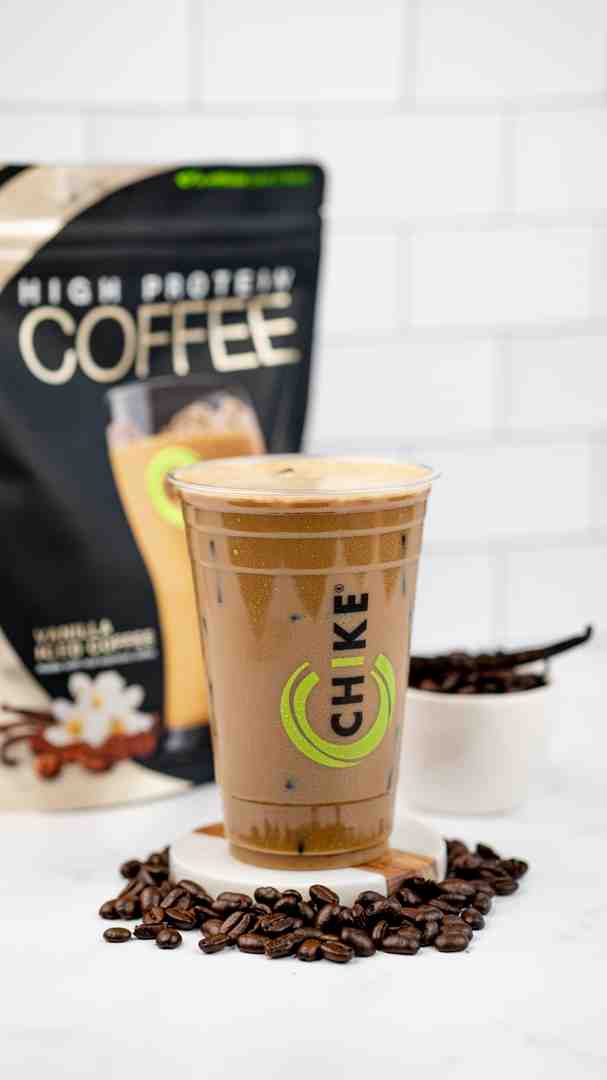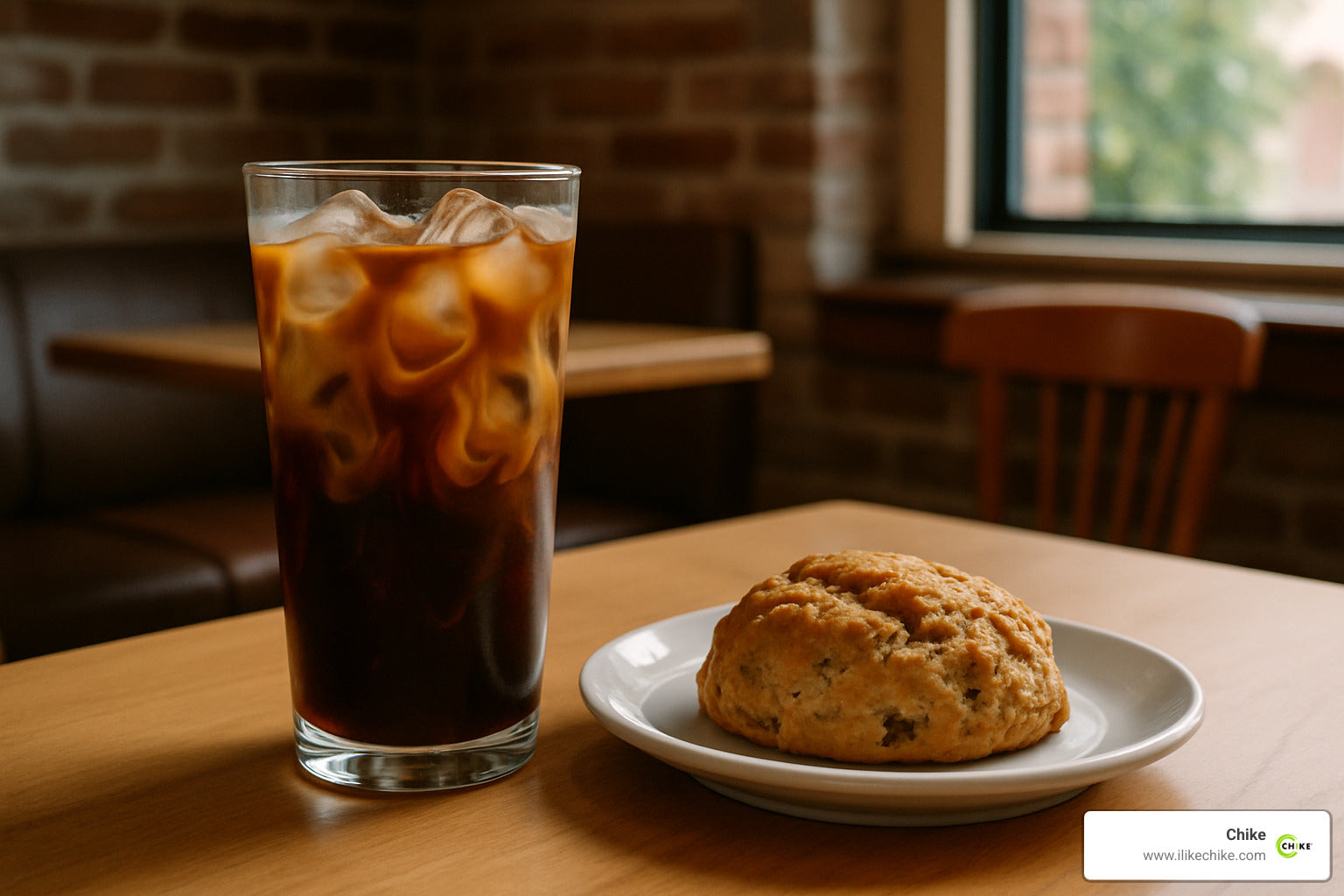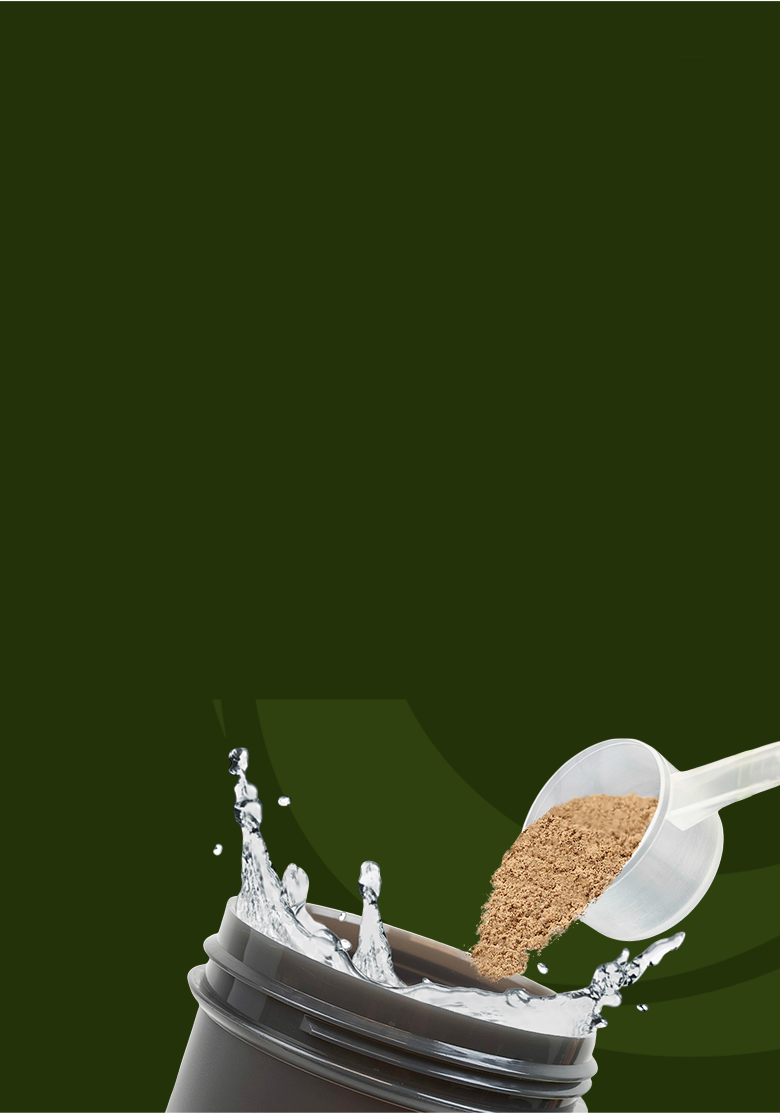Coffee For Muscle Recovery: The Science-Backed Benefits
Coffee for muscle recovery is not just a trendy fitness hack—it's backed by solid research. Here's what you need to know:
Key Benefits of Coffee for Muscle Recovery:
- Reduces muscle soreness by blocking adenosine receptors that signal pain
- Accelerates glycogen replenishment by up to 66% when combined with carbohydrates
- Improves blood flow by approximately 30% for up to 75 minutes
- Optimal timing: 30-60 minutes post-workout
- Effective dosage: 5-6 mg of caffeine per kg of body weight
After an intense workout, your muscles are primed for recovery—but how you fuel that process makes all the difference. That post-exercise window is critical for replenishing energy stores and repairing microscopic muscle damage. While protein shakes dominate the recovery conversation, your morning brew might be a surprising ally in your fitness journey.
Recent research has revealed that coffee—specifically the caffeine, caffeic acid, and cafestol it contains—can significantly improve muscle glycogen recovery when paired with carbohydrates. A randomized clinical trial published in the journal Nutrients found that coffee increased muscle glycogen resynthesis by a remarkable 153% compared to a control beverage.
But coffee's recovery benefits extend beyond just refueling. Its ability to block pain receptors helps reduce the perception of delayed onset muscle soreness (DOMS), potentially getting you back to your training routine faster.
Let me introduce myself, I'm Mac Mascorro, a wellness marketing executive https://www.linkedin.com/in/macmascorro/, and I've spent my time at Chike researching coffee for muscle recovery while helping develop protein-improved coffee products that maximize post-workout benefits. I've worked with countless athletes and fitness enthusiasts to optimize their recovery routines through strategic caffeine and protein timing.
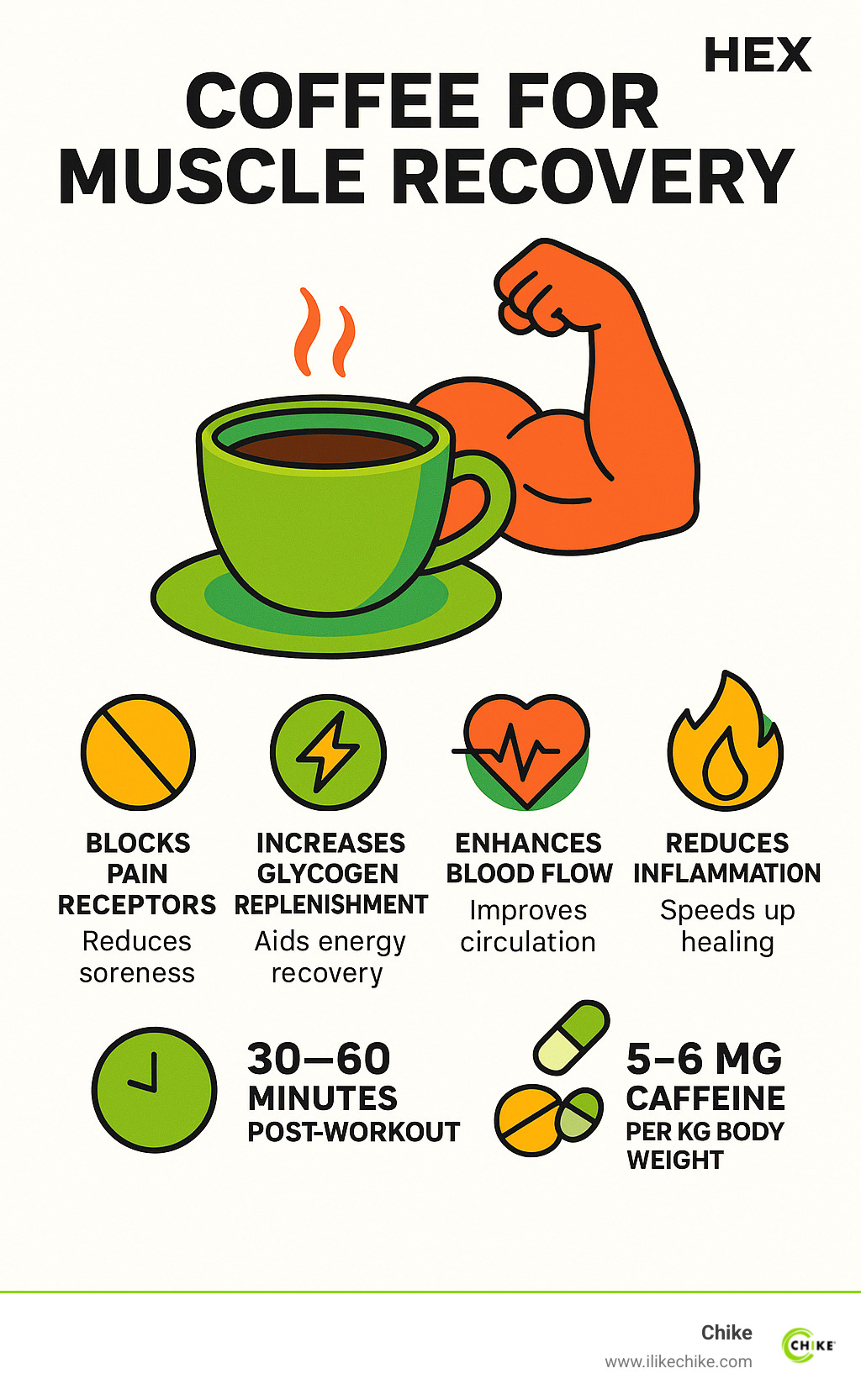
Why Muscle Recovery Matters After Exercise
Ever finished a tough workout feeling like a champion, only to wake up the next day barely able to move? That's your body's way of saying, "Hey, we need some recovery time!" When we exercise, we're actually creating tiny tears in our muscle fibers. Don't worry—this isn't harmful. It's actually the essential first step in getting stronger, faster, and more fit.
Think of recovery as the unsung hero of your fitness journey. Without it, all that hard work in the gym might not lead to the results you're hoping for. Your muscles don't actually get stronger during your workout—they get stronger during recovery.
Proper muscle recovery prevents injuries by giving your body time to repair vulnerable tissues. When you rush back into intense training before healing, you're essentially building on a cracked foundation. Recovery is also when performance improvements actually happen—those microscopic tears heal back stronger, making you more powerful for your next session.
Ever been so sore you had to skip your workout? While some muscle soreness (known as DOMS) is normal, excessive soreness can derail your training schedule. Good recovery strategies help manage this discomfort. Your muscles also need to replenish their glycogen stores—think of this as refilling your car's gas tank after a long drive.
And don't underestimate the mental aspect—physical recovery contributes significantly to your psychological readiness for the next challenge. Your mind needs recovery just as much as your muscles do!
What Exactly Is Muscle Recovery?
Coffee for muscle recovery works alongside your body's natural repair processes. But what's actually happening beneath the surface during recovery?
Recovery isn't a single process but a symphony of biological activities. Protein synthesis is the star of the show—your body creates new proteins to repair those exercise-induced micro-tears. This is why protein intake is so crucial after workouts.
Simultaneously, your muscles are busy with glycogen resynthesis, restoring the carbohydrate energy stores depleted during exercise. Your cells are also actively rehydrating, which is why that post-workout thirst is so real.
The inflammation that causes soreness? That's actually part of the healing process. Your body works on reducing inflammation once it's done its job. Meanwhile, your hormonal system is hard at work balancing stress hormones like cortisol with recovery hormones like testosterone.
These processes unfold over hours and days—not minutes. The most critical window, often called the "golden hour," occurs within 30-60 minutes post-workout. This is when your body is especially primed for glycogen replenishment and protein synthesis.
What Causes Post-Workout Soreness?
That familiar ache that peaks 24-48 hours after a challenging workout has a name: Delayed Onset Muscle Soreness (DOMS). And contrary to what many believe, it's not primarily caused by lactic acid buildup. That burning sensation during exercise? That's different—it disappears shortly after you stop exercising.
DOMS comes from microscopic muscle tears that trigger your body's inflammatory response. When muscle fibers are damaged, they release calcium, which activates enzymes that further break down proteins (part of the repair process). Exercise also produces free radicals that can cause oxidative stress, contributing to soreness.
The inflammatory process is actually your friend—it's your body's natural healing mechanism, though it does cause temporary swelling and pain. During this process, nerve endings in your muscles become more sensitive, which is why you feel sore when moving or touching the affected area.
Some workouts cause more DOMS than others. Activities with eccentric muscle contractions—where muscles lengthen under tension, like lowering weights or running downhill—typically cause more pronounced soreness. If you're new to a particular exercise or returning after a break, you'll likely experience more intense DOMS as well.
Understanding these recovery processes helps explain why coffee for muscle recovery can be so effective—its compounds work directly with these natural mechanisms to improve and accelerate your body's own repair systems.
Coffee for Muscle Recovery: How Does It Work?
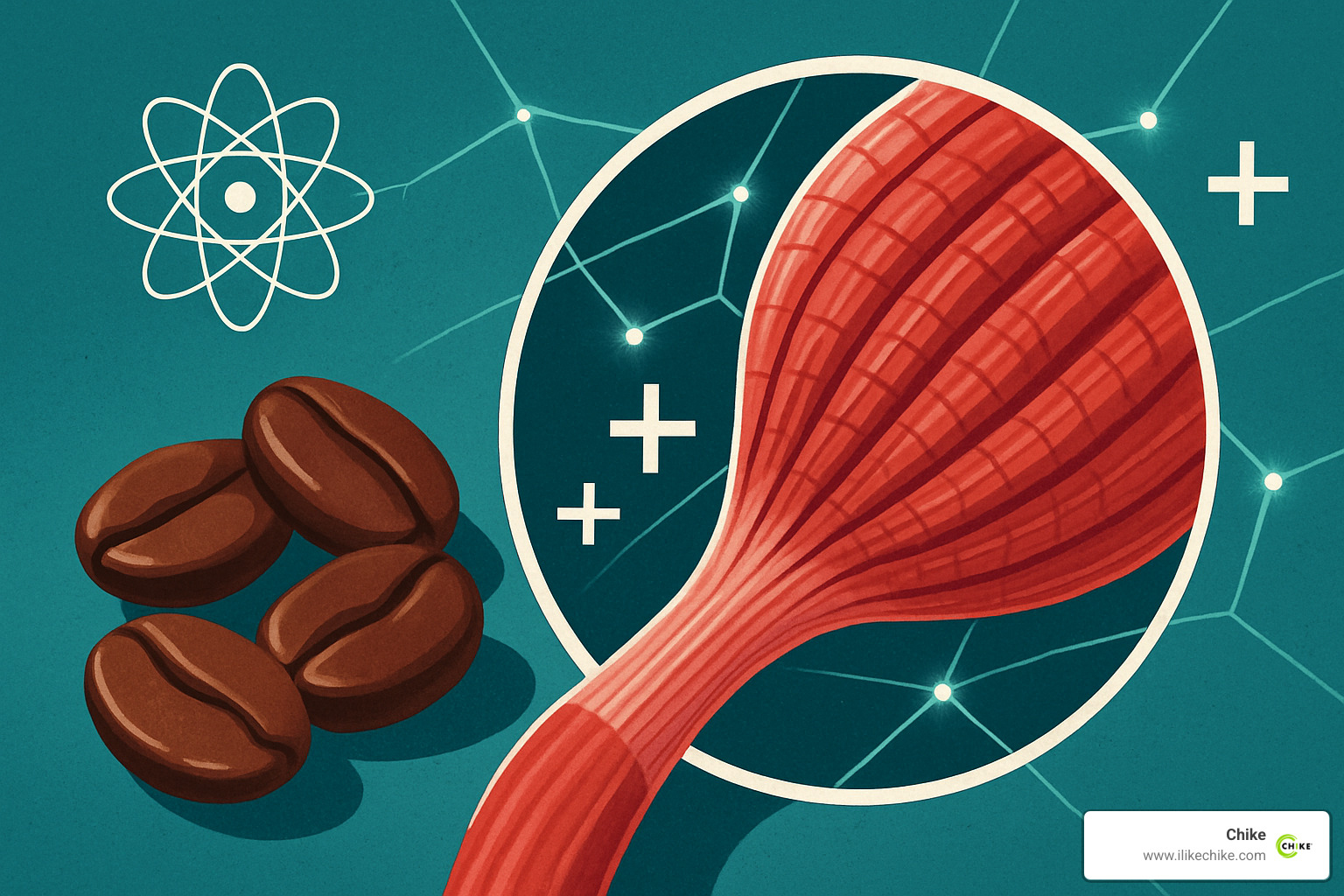
Your morning cup of joe might be doing more for your muscles than you realize. That rich, aromatic brew contains a remarkable array of compounds that work together to speed up your post-workout recovery in ways you might find surprising.
When we talk about coffee for muscle recovery, we're not just talking about the caffeine kick—though that's certainly important. Coffee is actually a complex beverage containing chlorogenic acid, caffeic acid, and cafestol that all contribute to healing those tired muscles.
Think of coffee as your recovery multitasker. It blocks pain signals, boosts blood flow, and helps refill your energy tanks all at once. Here's the fascinating science behind how it works:
The most immediate benefit comes from caffeine's ability to block adenosine receptors in your body. Adenosine is essentially your body's pain messenger—when it binds to receptors, you feel more soreness. Caffeine cleverly mimics adenosine's shape, plugging those receptors without activating them. The result? Less perceived muscle soreness after tough workouts.
Your post-workout muscles also need good circulation, and coffee delivers here too. Research from the American Heart Association has found that caffeine improves blood flow by about 30% for over an hour after drinking it. This improved circulation means more oxygen and nutrients reach your recovering muscles while waste products get flushed away faster.
Coffee also activates an enzyme called AMPK that acts like a cellular energy regulator. When AMPK gets activated, your muscles become more efficient at absorbing glucose, which helps rebuild your glycogen stores more quickly.
The anti-inflammatory compounds in coffee, particularly chlorogenic acid, help calm the natural inflammation that occurs during exercise. And as a bonus, caffeine triggers the release of beta-endorphins—your body's natural painkillers—giving you double the pain-fighting power.
Caffeine's Pain-Modulating Effects
Have you ever noticed that coffee seems to take the edge off after a particularly grueling workout? That's not just in your head.
A fascinating study from the Journal of Strength and Conditioning Research found that people who consumed caffeine before an intense upper-body workout reported significantly less soreness on the following days compared to those who didn't have caffeine. The difference was most noticeable on days 2 and 3, when DOMS typically peaks.
This pain-relieving magic happens because caffeine and adenosine look similar at the molecular level. When you exercise hard, adenosine levels rise in your muscles and brain, contributing to that familiar ache. Caffeine essentially plays a molecular game of musical chairs, taking adenosine's seat at the receptor and blocking the pain signal from being transmitted.
For this effect to work optimally, research suggests consuming about 5-6 mg of caffeine per kilogram of body weight. For someone weighing 150 pounds (68 kg), that's roughly 345 mg of caffeine—about 3-4 cups of regular coffee.
What's particularly encouraging is that these benefits appear to work equally well for both men and women. Studies show that caffeine consumption at 24 and 48 hours post-exercise improved muscle power recovery and reduced soreness regardless of gender.
Can Coffee Refill Glycogen Stores?
Perhaps the most impressive recovery benefit of coffee for muscle recovery is how it boosts your body's ability to replenish glycogen—the stored form of carbohydrate that powers your muscles.
When researchers at the Journal of Applied Physiology studied athletes who consumed caffeine with carbohydrates after exhaustive exercise, they finded something remarkable: glycogen recovery increased by 66% compared to carbohydrates alone. Even more impressive, a 2021 study in Nutrients found that coffee plus carbs boosted glycogen resynthesis by an astonishing 153% compared to a control drink.
So how does your cup of coffee pull off this recovery magic? It works through several complementary pathways:
First, caffeine and other coffee compounds temporarily make your muscle cells more responsive to insulin, which helps shuttle more glucose into those hungry muscles. Coffee also amplifies the activation of AMPK, which is already liftd after exercise, creating a powerful one-two punch that dramatically increases glucose transport into muscle cells.
Beyond caffeine, compounds like caffeic acid and cafestol stimulate insulin secretion and improve glucose uptake through their own mechanisms. It's like having a team of recovery specialists all working together in your mug.
The practical takeaway? Pairing your post-workout coffee with some quality carbohydrates creates a recovery synergy that can significantly accelerate muscle glycogen replenishment. This means you might recover faster between training sessions and maintain higher energy levels throughout your fitness journey.
What the Science Says: Key Studies & Statistics
The research behind coffee for muscle recovery has been brewing strong in recent years, with impressive findings that might just convince you to reach for a cup after your next workout.
Scientists have been studying coffee's recovery benefits with increasingly sophisticated methods, and the results are eye-opening. In a 2021 randomized clinical trial published in Nutrients, researchers finded something remarkable: when athletes consumed coffee with carbohydrates after exhaustive exercise, their muscle glycogen recovery increased by 102.56 ± 18.75 mmol·kg dw−1. Compare that to just 40.54 ± 18.74 mmol·kg dw−1 with carbohydrates alone. That difference wasn't just noticeable—it was statistically significant (p = 0.01).
But coffee's benefits don't stop at refueling your energy tanks. That post-workout soreness we all dread? A 2013 study in the Journal of Strength and Conditioning Research found that caffeine consumed before an intense upper-body workout significantly reduced muscle soreness during the peak days of discomfort (days 2 and 3). Imagine bouncing back faster and getting back to your routine with less wincing and more winning.
Your muscles also need good circulation to recover properly, and coffee delivers here too. Research from the American Heart Association shows caffeine improves blood flow by about 30% for up to 75 minutes after drinking it. Better blood flow means more nutrients reaching those recovering muscles and faster removal of metabolic waste—a recovery double-win.
Even during your workout, coffee can help set the stage for better recovery. Studies show that two to three cups of coffee an hour before intense cycling decreases muscle pain during exercise. When you can push through a more complete training session, your body adapts more effectively, creating a virtuous cycle of improvement.
Perhaps most impressive is coffee's ability to speed up the recovery timeline. With the right combination of coffee and carbs post-workout, you can replenish muscle glycogen stores in as little as four hours—a process that typically takes a full 24 hours without intervention. That's like having a recovery fast-forward button!
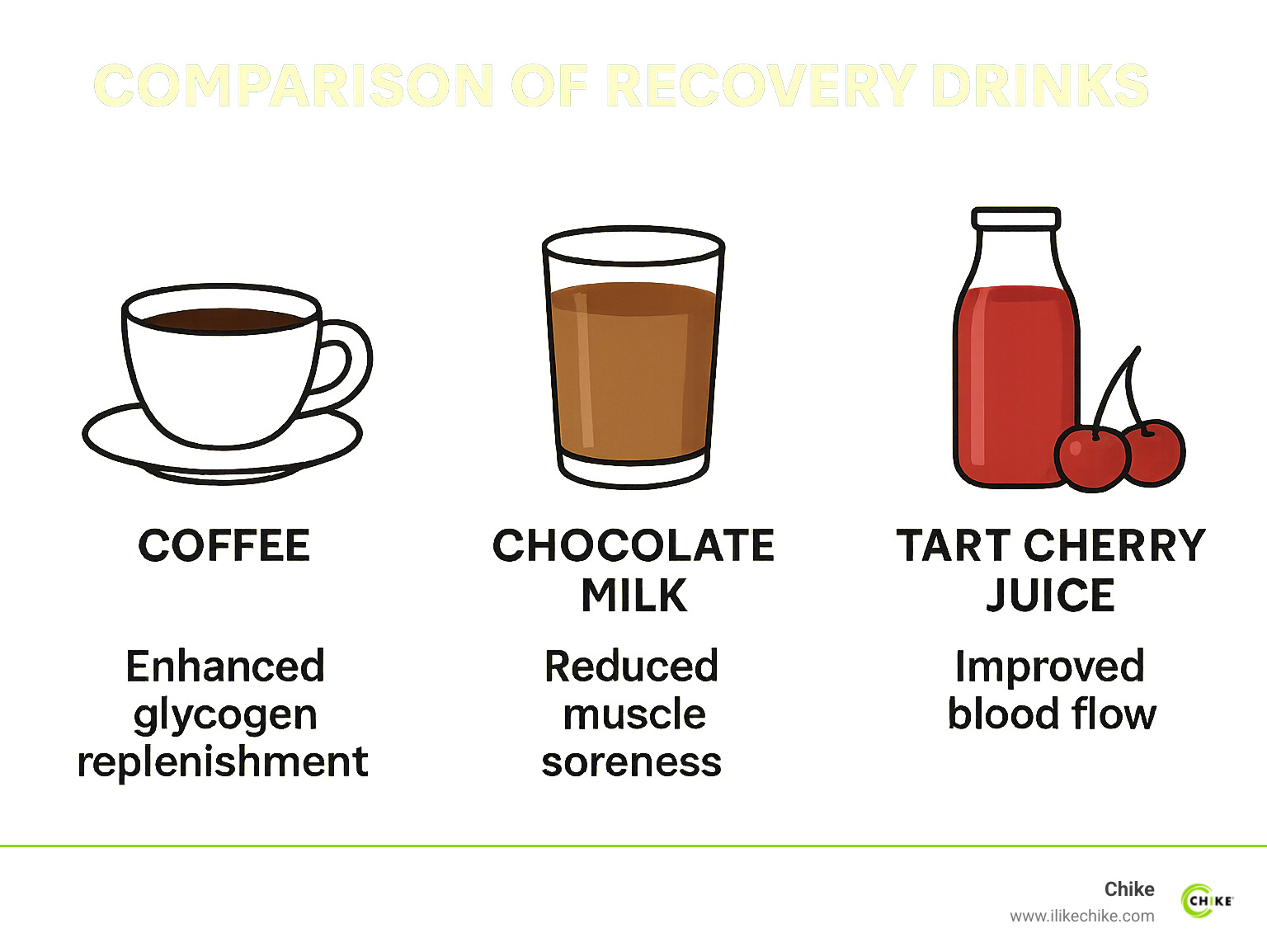
Study Highlights on Delayed-Onset Muscle Soreness
If you've ever struggled to walk down stairs after leg day, you know the real impact of DOMS on your training schedule. Fortunately, science suggests coffee might be your new best friend for managing this discomfort.
The 2013 study mentioned earlier dug deep into caffeine's effects on upper-body DOMS. Participants who consumed caffeine (5 mg/kg body weight) before performing bicep curls to exhaustion reported significantly less soreness when it typically peaks—days 2 and 3 after exercise. This timing is crucial because that's exactly when most people feel tempted to skip their next workout due to discomfort.
What's particularly interesting is that coffee appears helpful even after soreness has already set in. Research published in the International Journal of Sport Nutrition and Exercise Metabolism found that caffeine consumed 24 and 48 hours after damaging exercise reduced perceived soreness and helped strength return faster. This means even if you forgot your pre-workout coffee, having some afterward can still help your recovery process.
There may be some gender differences at play too. While both men and women benefit from caffeine's anti-soreness effects, a study in the Journal of Strength and Conditioning Research found slightly more pronounced benefits in men. This likely stems from differences in how men and women metabolize caffeine, which is worth considering when personalizing your recovery approach.
Evidence on Glycogen Resynthesis with Coffee + Carbs
The science on coffee's glycogen-replenishing powers is particularly robust. A groundbreaking study at RMIT University in Australia found that athletes who consumed caffeine with carbohydrates after exhaustive cycling had 66% higher muscle glycogen levels four hours post-exercise compared to those having carbohydrates alone.
Building on this foundation, a 2021 study took things further by examining real coffee rather than isolated caffeine. The researchers recruited 14 well-trained male endurance athletes and put them through glycogen-depleting exercise. Afterward, some received a coffee-milk-sugar beverage while others got the same drink minus the coffee.
The results were striking. Muscle biopsies (yes, actual samples of muscle tissue) revealed that the coffee group experienced a 153% greater increase in muscle glycogen content. Their blood glucose and insulin responses were also higher, suggesting coffee improved both the availability of glucose in the bloodstream and its uptake into muscle cells.
What makes these findings particularly valuable is their relevance to the critical four-hour recovery window. Your muscles are most receptive to glycogen replenishment immediately after exercise, and coffee appears to maximize this natural opportunity.
Comparing Coffee to Other Recovery Drinks
While coffee for muscle recovery shows impressive benefits, it's worth understanding how it stacks up against other popular options.
Tart cherry juice is rich in anthocyanins that fight inflammation and oxidative stress. A 2010 study found marathon runners drinking tart cherry juice before and after racing experienced less muscle pain than those taking a placebo. While effective for reducing inflammation, it doesn't offer coffee's glycogen-enhancing benefits.
Beetroot juice contains dietary nitrates that improve blood flow and may reduce DOMS. A 2016 study found beetroot juice consumed around exercise reduced muscle soreness, though not as dramatically as caffeine. The nitrates in beetroot juice work through different mechanisms than caffeine, primarily by increasing nitric oxide production.
Chocolate milk has gained popularity for its natural 3:1 carbohydrate-to-protein ratio, making it effective for glycogen replenishment and protein synthesis. Studies show it works well for recovery, similar to coffee when paired with a protein source.
Whey protein shakes excel at initiating protein synthesis and muscle repair but lack coffee's pain-modulating and glycogen-enhancing effects unless carbohydrates are added. Many athletes find that combining coffee with protein gives them the best of both worlds.
What makes coffee truly stand out is its unique combination of benefits—pain reduction, improved glycogen synthesis, improved blood flow, and anti-inflammatory effects—all in an accessible, affordable beverage that most people already enjoy. When you consider adding protein to your coffee (like Chike's protein coffee with 20g of protein and real espresso), you're essentially creating a complete recovery solution in a single delicious cup.
For more information on alternative recovery foods and their effectiveness, check out this comprehensive research review on nutritional strategies for recovery.
Practical Guide: Timing, Dosing & Pairings

So you're sold on the science, but how do you actually use coffee for muscle recovery in real life? Let's break down the practical stuff – when to drink it, how much you need, and what to pair it with for maximum benefits.
Optimal Timing to Drink Coffee for Muscle Recovery
Timing is everything when it comes to recovery. That post-workout window isn't just fitness marketing hype – it's backed by science.
The sweet spot for coffee for muscle recovery is within the first hour after your workout. Your muscles are like sponges during this time, eager to soak up nutrients and kickstart repair. The caffeine and other beneficial compounds in coffee can help accelerate this process, especially when it comes to replenishing your glycogen stores.
Some recovery experts suggest waiting about 30 minutes after your workout before having coffee. This gives your body a chance to initiate its natural recovery processes and ensures you've had time to rehydrate first. Coffee isn't a substitute for water!
If you're a pre-workout coffee drinker, you're already setting yourself up for better recovery. When you consume caffeine 30-60 minutes before exercise, you're not just boosting performance – you're also reducing exercise-induced inflammation, which means less damage to recover from later.
Evening exercisers, take note: caffeine has a half-life of about 5-6 hours, so that post-workout cup at 8 PM might leave you staring at the ceiling at midnight. Since quality sleep is arguably the most important recovery tool, consider switching to decaf if you work out late.
How Much Coffee or Caffeine Is Enough?
When it comes to dosing, there's a sweet spot between "not enough to make a difference" and "so much you're vibrating."
Research points to 5-6 mg of caffeine per kg of body weight as the ideal dose for reducing muscle soreness. For someone weighing 150 pounds (68 kg), that's about 345 mg of caffeine – roughly 3-4 cups of regular coffee. For glycogen replenishment, studies have used slightly higher doses (around 8 mg/kg), though newer research suggests even 3-5 mg/kg is effective when consumed as coffee rather than pure caffeine.
The FDA recommends capping your daily caffeine intake at 400 mg (about 4 cups of coffee) to avoid the jitters, anxiety, and sleep issues that can come with overdoing it. But here's where things get personal – we all metabolize caffeine differently based on our genetics, regular consumption habits, and body composition.
If you're new to using coffee for muscle recovery, start with 1-2 cups and see how your body responds. You can always adjust up or down based on how you feel. More isn't always better!
Should You Add Carbs or Protein?
Coffee alone is good, but coffee with the right nutritional partners is great for recovery.
The magic happens when you combine coffee for muscle recovery with carbohydrates. This duo has been shown to dramatically improve glycogen replenishment – up to 66% faster than carbs alone! Aim for 0.8-1.2 grams of carbs per kg of body weight in your post-workout meal or snack.
Adding protein to the mix creates the recovery trifecta. A 3:1 or 4:1 ratio of carbs to protein seems to be the sweet spot for maximizing both glycogen restoration and muscle repair. Including 20-30 grams of quality protein provides the amino acids your muscles need to rebuild stronger.
This is where products like Chike's high-protein iced coffee shine – with 20g of protein and real espresso in one convenient package, you're getting your caffeine and protein needs met in a single delicious drink.
Want to create your own recovery blend? Try a simple coffee smoothie with a banana (for quick-digesting carbs), milk (for additional protein and carbs), and perhaps a spoonful of nut butter for some healthy fats that help slow digestion and provide sustained energy.
Incorporating Coffee Into Your Routine
Finding a practical, enjoyable way to include coffee for muscle recovery is key to making it a consistent habit.
Cold brew coffee makes an excellent recovery drink base. Its lower acidity is gentler on your stomach after a tough workout, and you can prepare it ahead of time so it's ready when you need it. Just add your preferred protein and carb sources, and you're good to go.
Pressed for time? A quick espresso shot alongside a balanced recovery meal (think Greek yogurt with berries and granola) gives you the benefits without any extra preparation.
For the ultimate convenience, consider an all-in-one option like Chike's High-Protein Iced Coffee. With 20g of protein, two espresso shots, and just 1g of sugar per serving, it's essentially a ready-made recovery solution that tastes like a treat.
Coffee-infused smoothies offer endless customization options. Blend cold brew with your favorite fruits, protein powder, and milk for a delicious post-workout treat that checks all the recovery boxes.
Even something as simple as coffee with milk and a drizzle of honey provides a balanced mix of caffeine, carbs, and protein in an easily digestible form – perfect for those times when your appetite hasn't quite returned after an intense session.
The best recovery routine is one you'll actually stick with. Experiment with these options to find what works for you, and remember that consistency trumps perfection when it comes to seeing long-term benefits from your coffee for muscle recovery strategy.
Risks, Side Effects & Individual Differences

While coffee for muscle recovery offers impressive benefits, it's not a one-size-fits-all solution. Your body might respond differently than your training partner's, and certain factors could influence how effective coffee is for your personal recovery journey.
Let's talk about the potential downsides you should consider before making coffee your go-to recovery drink.
That post-workout coffee might occasionally come with unwanted companions: jitters or anxiety, especially if you're sensitive to caffeine or go overboard with your serving size. Some people find that coffee's acidity doesn't play nicely with their stomach after intense exercise—something to be mindful of if you have a sensitive digestive system.
Timing matters too. That evening workout followed by a coffee recovery drink? It might help your muscles but hurt your sleep. Since caffeine hangs around in your system for 5-6 hours (that's its "half-life"), your post-workout brew could turn into pre-bedtime restlessness. And since quality sleep is perhaps the most powerful recovery tool in your arsenal, this trade-off rarely makes sense.
Blood pressure is another consideration. Caffeine typically causes a temporary spike, which isn't concerning for most healthy individuals but might be relevant if you're managing hypertension. And while the old myth about coffee being severely dehydrating has been debunked, it does have a mild diuretic effect—something to factor into your overall hydration strategy.
Nutrient Absorption Considerations
Your coffee might be silently affecting how your body absorbs certain nutrients important for recovery. Those polyphenols and tannins that make coffee so rich in antioxidants? They're also a bit possessive when it comes to minerals.
If you're pairing your coffee with iron-rich recovery foods, you might be getting less than you think. Coffee can reduce non-heme iron absorption (the kind found in plant foods) by up to 60% when consumed together. It can also slightly interfere with calcium and magnesium absorption—both minerals that play roles in muscle function and recovery.
This doesn't mean you need to abandon your recovery coffee—just be strategic. Consider waiting 30-60 minutes between your mineral-rich recovery meal and your coffee. Adding vitamin C to your meal can help overcome coffee's effect on iron absorption. And ensuring you get adequate minerals throughout the day, not just at recovery time, provides a buffer against any minor absorption issues.
Individual Differences in Response
We all have that friend who can down an espresso and take a nap immediately after, while others get the jitters from a small cup of coffee. This variation isn't just psychological—it's biological.
Your genes significantly influence how you process caffeine. The CYP1A2 gene, in particular, determines whether you're a "fast metabolizer" who efficiently processes caffeine with fewer side effects, or a "slow metabolizer" who might feel caffeine's effects more and for longer periods. Neither is better or worse—just different.
Your coffee history matters too. If you're a regular coffee drinker, you've likely developed some tolerance to caffeine's effects. This might mean you need a slightly higher dose to get the same recovery benefits as someone who rarely consumes caffeine.
Age plays a role as well. If you're an older athlete, your body typically metabolizes caffeine more slowly than your younger counterparts. This could actually improve caffeine's recovery benefits, but might also mean the effects (both good and bad) stick around longer.
Training status makes a difference too. Highly trained endurance athletes often show improved sensitivity to caffeine's performance and recovery benefits compared to recreational exercisers. If you've been training consistently for years, you might respond more favorably to coffee for muscle recovery than someone just starting their fitness journey.
Who Should Be Cautious?
While coffee is generally safe for most people, certain groups should approach coffee for muscle recovery with extra care.
Pregnant athletes should limit caffeine to about 200 mg daily (roughly two cups of coffee). Those managing hypertension should check with their healthcare provider about appropriate caffeine intake, as responses vary significantly between individuals.
If you struggle with anxiety, caffeine might not be your friend—it can sometimes amplify those symptoms. Similarly, certain digestive conditions like GERD, IBS, or ulcers might be aggravated by coffee's acidity and caffeine content.
Sleep quality is non-negotiable for recovery. If you're already battling insomnia or other sleep disruptions, the potential recovery benefits of coffee might be outweighed by its sleep-disrupting effects.
Coffee vs Other Recovery Strategies
Coffee for muscle recovery works best as part of a comprehensive approach, not as your only recovery strategy. Think of it as one tool in your recovery toolkit—valuable, but most effective when used alongside other proven methods.
Quality sleep remains the undisputed champion of recovery, providing essential time for hormone regulation, tissue repair, and nervous system recovery. No amount of coffee can compensate for insufficient or poor-quality sleep.
Balanced nutrition forms the foundation of effective recovery, with adequate protein, carbohydrates, and micronutrients supporting your body's repair processes. Chike's protein coffee offers a convenient way to combine the benefits of protein and coffee in one delicious package, but it's still important to focus on whole-food nutrition throughout the day.
Hydration deserves priority status in your recovery protocol. Before or alongside your recovery coffee, make sure you're replacing fluids lost through sweat.
Active recovery—like gentle walking, swimming, or yoga—can improve blood flow and speed recovery without adding stress to your system. These activities work through different mechanisms than coffee, making them complementary rather than competitive strategies.
The most effective approach to recovery is typically a personalized combination of strategies that match your individual needs, preferences, and response patterns. By understanding both the benefits and limitations of coffee for muscle recovery, you can make informed decisions about how to incorporate it into your overall recovery plan.
Frequently Asked Questions about Coffee for Muscle Recovery
Does decaf offer any recovery benefits?
If you're sensitive to caffeine or it's getting late in the day, you might wonder if your decaf can still help your muscles bounce back. The good news is yes – decaffeinated coffee does retain many beneficial compounds that support recovery, though not quite to the same degree as regular coffee.
Decaf keeps most of those wonderful chlorogenic acids, caffeic acid, and polyphenols that fight inflammation after your workout. These compounds can help calm the inflammatory response that happens when you've pushed your muscles hard.
What you'll miss with decaf is caffeine's pain-blocking magic. Since caffeine works by preventing adenosine from binding to its receptors (which signals pain), decaf won't give you that same relief from soreness. You also won't get the significant glycogen-replenishing benefits that caffeine provides.
Think of decaf as recovery-lite – it offers some benefits, making it perfect if you're working out in the evening, have already had your caffeine quota for the day, or simply don't tolerate caffeine well. It's definitely better than nothing, but won't pack the same recovery punch as its caffeinated cousin.
Can coffee replace my post-workout protein shake?
While that cup of coffee might feel reviving after a tough workout, it can't stand in for protein when it comes to rebuilding your muscles. Coffee and protein actually serve complementary roles in recovery – one isn't a substitute for the other.
Coffee by itself doesn't provide the amino acids your muscles desperately need for repair and growth. That's why we created Chike's High-Protein Iced Coffee – it delivers the best of both worlds with 20g of high-quality protein alongside two real espresso shots in one delicious package.
This combination gives you multiple recovery benefits:
Coffee's contribution: Pain reduction, improved glycogen replenishment, and improved blood flow Protein's contribution: Essential amino acids for muscle repair and preventing muscle breakdown Together: A more complete recovery that addresses both energy replenishment and tissue repair
With just 1g of sugar per serving, Chike's protein coffee means you don't have to choose between your coffee craving and your recovery needs – you get both in one convenient, tasty solution.
Will caffeine dehydrate me after hard training?
Let's bust this persistent myth once and for all – moderate coffee consumption does not significantly dehydrate you, even after exercise. Modern research has thoroughly debunked the old idea that coffee leaves you parched.
For regular coffee drinkers, having 3-4 cups daily doesn't cause dehydration because the fluid in the coffee more than makes up for caffeine's mild diuretic effect. Your body adapts to regular caffeine intake, further minimizing any dehydrating potential.
That said, proper hydration remains crucial after sweating through a workout. Your best approach is to:
First: Rehydrate with water immediately after exercise Then: Wait about 15-30 minutes before enjoying your recovery coffee Throughout the day: Continue drinking water regularly
If you've had a particularly intense session or worked out in the heat, consider adding some electrolytes to your post-workout water to replace what you've lost through sweat.
Hydration actually improves all aspects of recovery, including how well your body uses the beneficial compounds in coffee. The two work hand-in-hand, not against each other – so enjoy your coffee for muscle recovery without worry, just be sure to drink your water too!
Conclusion
Let's face it – your post-workout routine can make or break your fitness progress. After exploring the science behind coffee for muscle recovery, one thing is crystal clear: that morning brew isn't just for waking up anymore.
Your cup of joe works hard behind the scenes after exercise, blocking pain signals, boosting glycogen replenishment, and improving blood flow to tired muscles. When timed right – about 30-60 minutes after your workout – and paired with some carbs and protein, coffee becomes a recovery powerhouse that's likely already in your kitchen.
Most people see benefits with about 3-6 mg of caffeine per kg of body weight, though your personal sweet spot might differ based on your genetics and how regularly you drink coffee. Guy at the gym who can down an espresso and fall asleep an hour later? Genetics at work!
Coffee works best when it's part of your bigger recovery picture. Think of it as one tool in your recovery toolkit alongside proper nutrition, staying hydrated, and getting enough sleep. No matter how magical coffee might seem, it can't replace a good night's rest or adequate protein intake.
The beauty of using coffee for muscle recovery is how easily it fits into most people's routines. If you're already a coffee lover, you're just optimizing something you enjoy. And if convenience matters to you (doesn't it to all of us?), Chike's High-Protein Iced Coffee combines 20g of protein with two espresso shots and just 1g of sugar – addressing multiple recovery needs in one delicious drink.
Recovery isn't one-size-fits-all. Your body might respond differently than your workout partner's, so don't be afraid to experiment with timing, amounts, and food combinations. Pay attention to how you feel and adjust accordingly. Maybe you recover better with coffee before your morning workout but not after your evening session. Or perhaps adding a banana and some protein makes all the difference.
The goal isn't just to recover faster – it's to build a sustainable approach to fitness that you actually enjoy. When recovery feels good and tastes good, you're more likely to stick with your routine long-term. And ultimately, consistency is what transforms your body, not any single workout or recovery drink.
So go ahead – enjoy that post-workout coffee knowing it's doing more than just satisfying your caffeine craving. It's actively helping your muscles recover so you can come back stronger tomorrow.
Learn more about how Chike's high-protein iced coffee can improve your recovery.
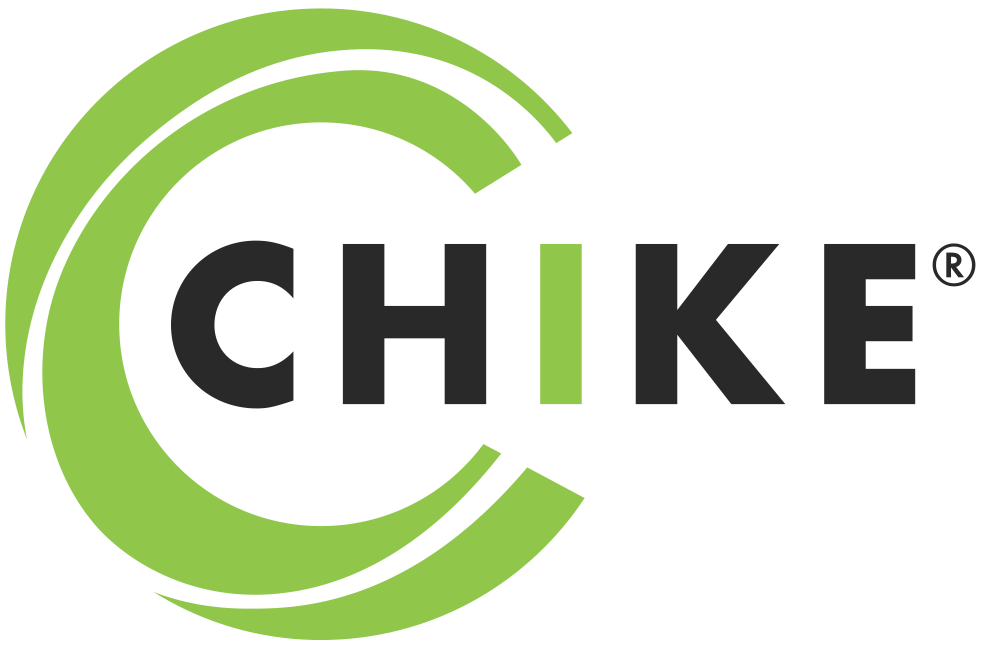
 LOVED BY 2,500,000+ CUSTOMERS
LOVED BY 2,500,000+ CUSTOMERS FAST NATIONWIDE SHIPPING
FAST NATIONWIDE SHIPPING SECURE CHECKOUT
SECURE CHECKOUT CLEAN INGREDIENTS
CLEAN INGREDIENTS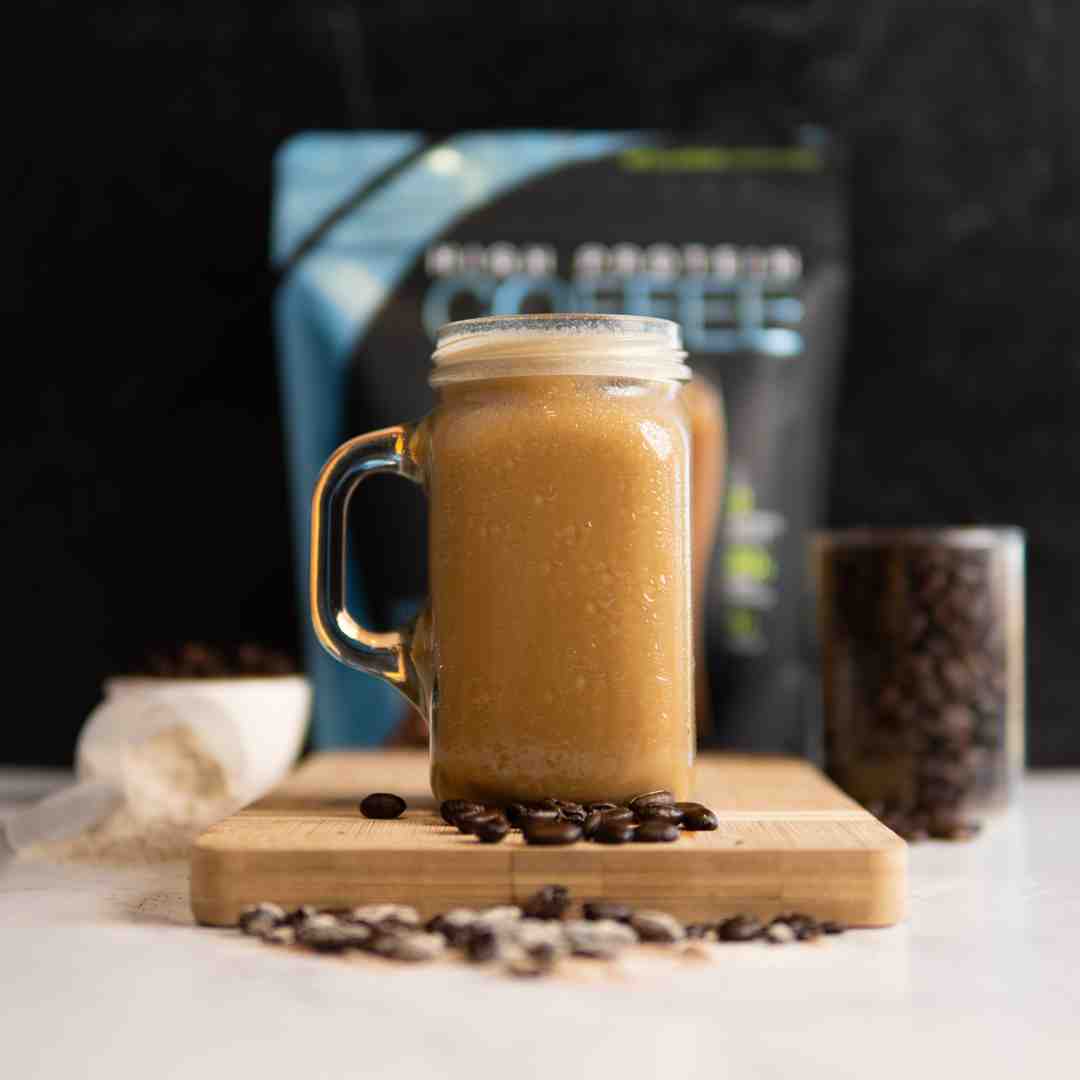
 All Posts
All Posts